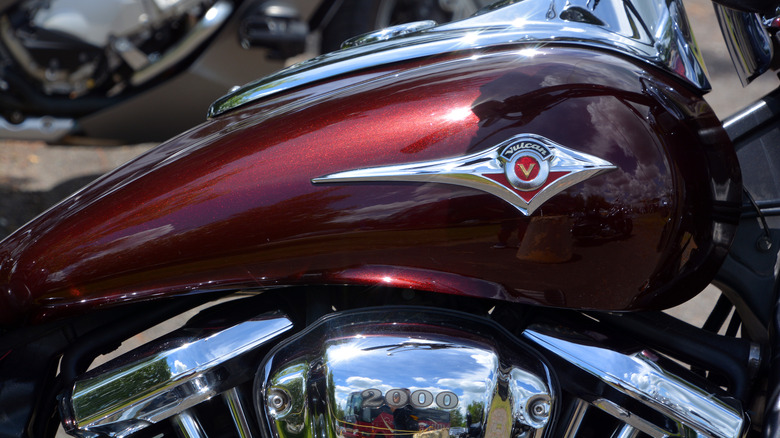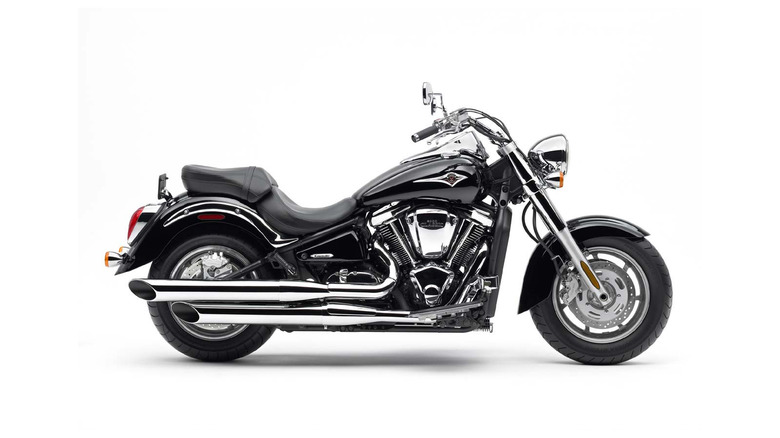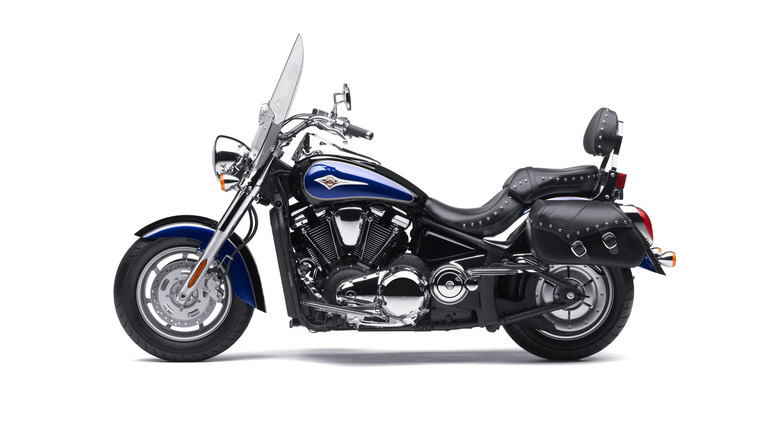All About The Kawasaki Vulcan 2000 Motorcycle
Kawasaki has had many motorcycles over the years, and some are more fondly remembered than others. The Vulcan 2000, for example, was only in production for six years but it left an imprint on its buyers and the motorcycle community. It might not be the brand's most famous motorcycle or even the greatest of the Vulcan line, but it pushed boundaries when it was new. While you have to hit the used market to find one these days, if you can get one in good shape and low mileage, you could potentially have a lot of fun if you take care of it.
You won't find anything with a warranty at this point, and the Kawasaki Protection Plus plan isn't likely to cover your Vulcan 2000. This means that all of the repairs that have to be done will come right out of your pocket, and that can be expensive on a used motorcycle. Nevertheless, this is a tradeoff you take with a lot of pre-owned vehicles, which is why it's important to do your due diligence when buying a used motorcycle. So, what else is there to know about the Kawasaki Vulcan 2000?
Kawasaki Vulcan 2000 is a heavy motorcycle
The Kawasaki Vulcan S, the Vulcan in production today, has a curb weight of just under 500 lbs for both the ABS and non-ABS versions. That's not the lightest bike in the world by any means, but it's manageable. To put that in perspective, the Vulcan 2000's curb weight is over 800 lbs. We still see heavy bikes today, but not many come into the range of what the Vulcan 2000 hits. It's still perfectly ridable, but it could take some getting used to if you're coming from a lighter bike or you're a beginner rider.
The riding weight can very easily go over 1,000 lbs, so it makes sense that the Vulcan 2000 has a hefty 2053 cc engine to compensate. The Vulcan of today doesn't have an engine anywhere near that size, but it's no slouch either with a four-stroke 649 cc motor. Size was a huge selling point of the Vulcan 2000, and for a time it boasted the biggest V-twin engine on the market.
How fast can the Kawasaki Vulcan 2000 go?
Despite being a heavy bike, the Vulcan 2000 has more than enough punch to pass cars on the expressway with ease. Capable of reaching speeds up to 150 mph, it doesn't hang with the fastest motorcycles Kawasaki has ever built, but it's more than enough for the average person commuting to work. The low center of gravity works in the bike's favor and makes it feel easy to ride even at high speeds. The Motorcyclist publication notes that the Vulcan 2000 feels as smooth to turn at 100 mph as it does at 20 mph in its 2004 road test review.
It's not the best performer over bumpy roads and the low seat height of 27.2 inches isn't for everyone, but it's clear the model has its fans. The bike was produced from 2004 to 2010, so it didn't have a long run, especially when compared to the Vulcan line as a whole that dates back to 1984. Tracking down a Vulcan 2000 is getting more difficult as the years pass, but listings do pop up here and there for around $4,000. That's far lower than its initial $14,449 MSRP, but considering that it's years later it shows the bike does a decent job holding its value.


